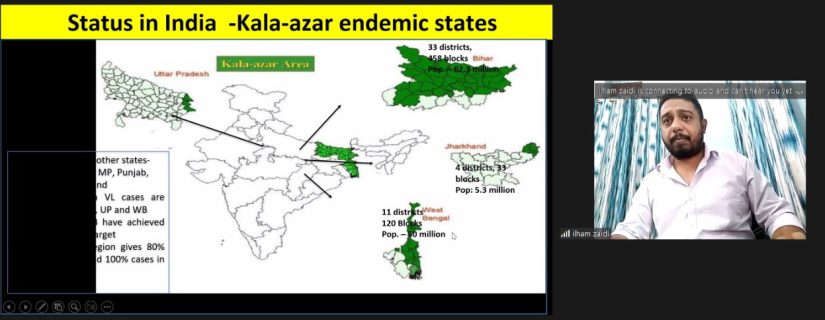
The Postgraduate Program in Tropical Medicine, FK-KMK UGM, again held an online guest lecture on Tuesday (15/11). Dr. Ilham Zaidi, a Program Officer (NTDs) at PATH India, was invited as a guest lecturer. This guest lecture is part of the Epidemiology, Control and Management of NTD courses organized by the Tropical Medicine Postgraduate Program. The course is taken by all International Health – Implementation Research students.
Lecture topics presented by Dr. Ilham Zaidi’s theme is Epidemiology, Control and Management of Leishmaniasis. Leishmaniasis is a parasitic disease caused by the Leishmania protozoa which is transmitted through the bite of a female phlebotomus sandflies.
Leishmaniasis comes in a variety of types, including cutaneous leishmaniasis, which typically affects the skin, mucocutaneous leishmaniasis, which affects the skin and mucous membranes, and visceral leishmaniasis, also known as kala-azar, which affects several internal organs including the spleen, liver, and bone marrow.
Visceral leishmaniasis (VL) is an endemic disease in Brazil, Ethiopia, India, Kenya, Somalia, South Sudan, and Sudan. In addition, Dr. Ilham Zaidi noted that the VL or also known Kala-Azar, is a public health issue of special significance in India, where the Indian government have launched the Kala-Azar Control Program since 1990.
In this lecture, he explained the strategy used to eliminate Kala-Azar. This includes conducting integrated vector surveillance and control management, early diagnosis, thorough case management, accessibility to advocacy, communication, and community empowerment, as well as monitoring, surveillance, and program evaluation.
This guest lecture was attended by around 40 students from various postgraduate programs and is open to the public. This time, the guest lecture was held virtually and moderated by drh. Kharisma Dewi, MPH. Before the lecture is over, students are given the opportunity to have Q&A session.
This Guest Lecture has become a routine agenda for every study program at FK-KMK UGM with the aim of updating the most recent knowledge by inviting speakers from various countries related to certain topics.
